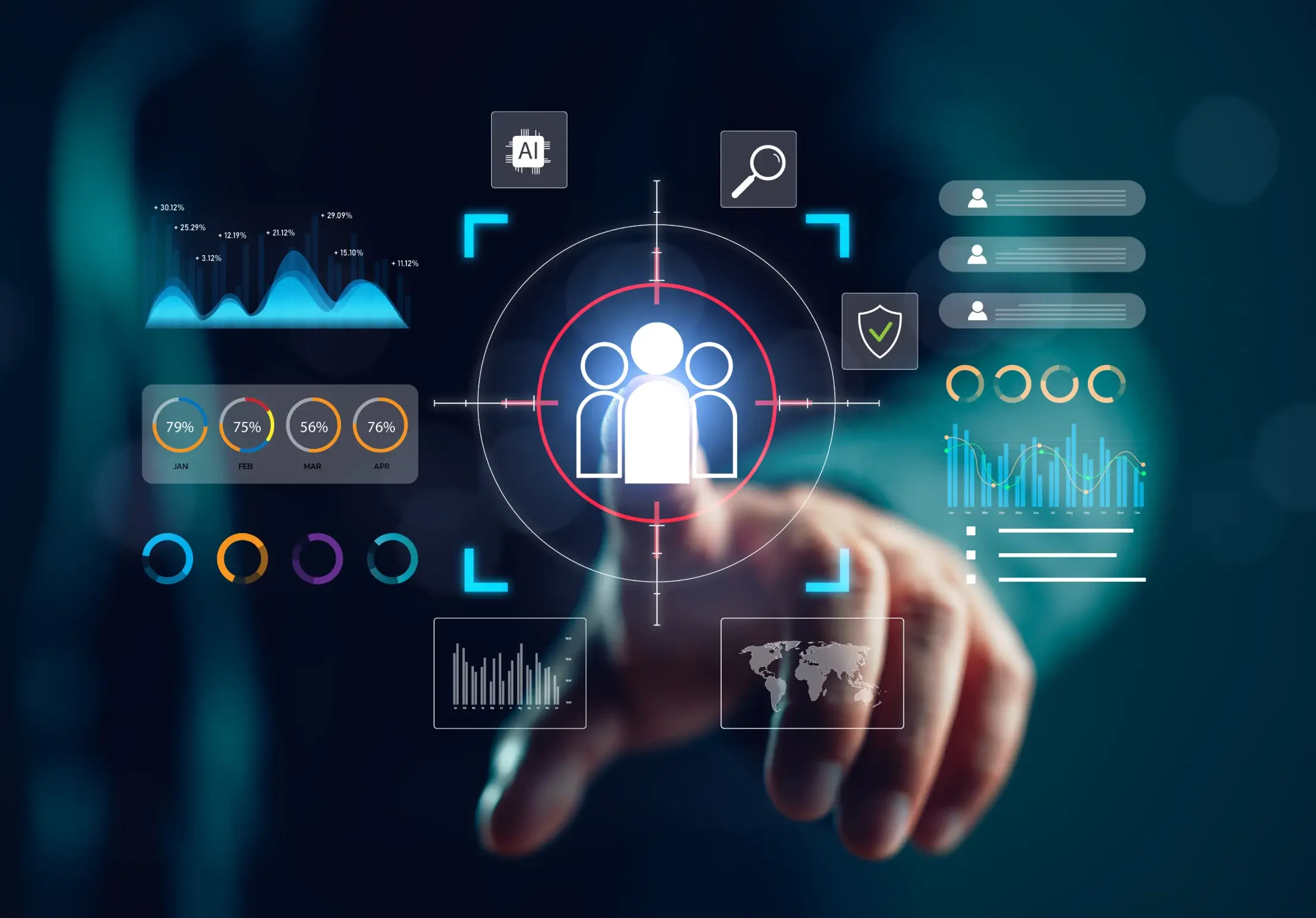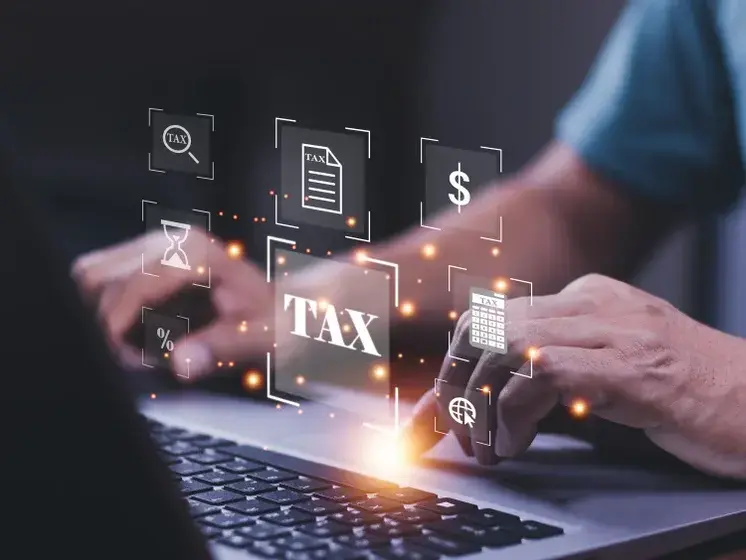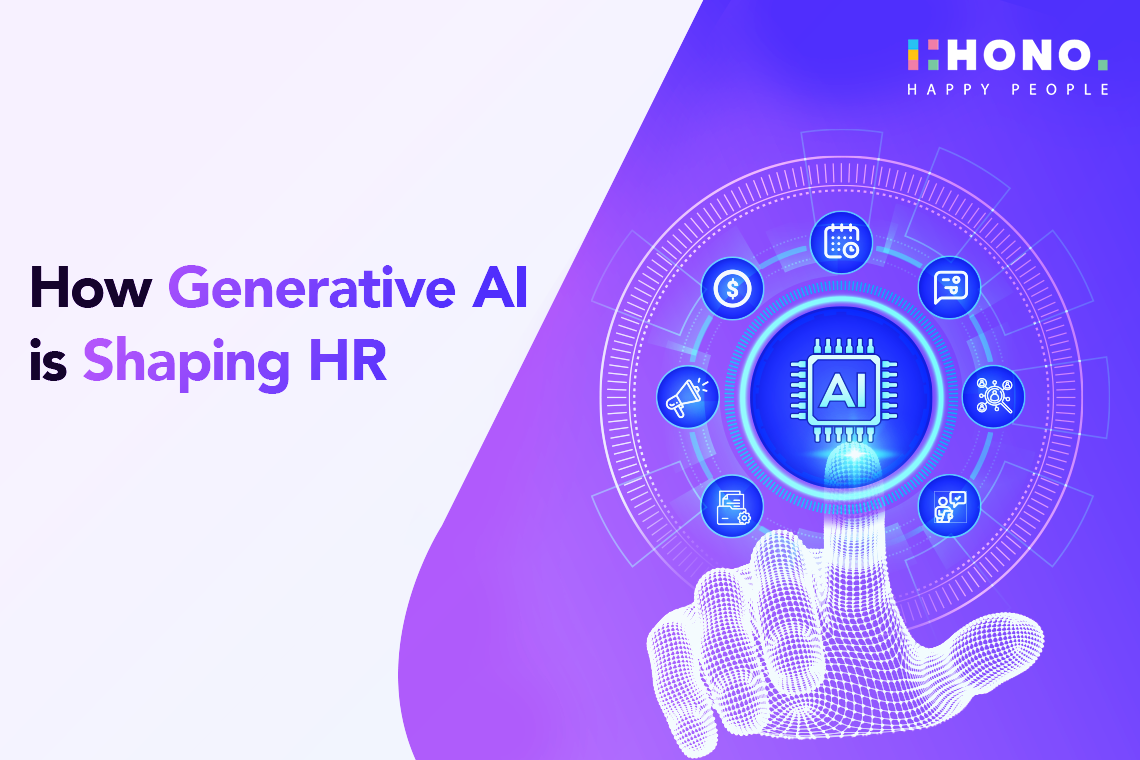More than half of companies (53%) plan to redesign their business practices to place people precisely at the center of operations and 53% are looking to the future via the increasing use of artificial intelligence and data solutions like predictive analytics, as reported by Mercer's 2020 Global Talent Trends Study.
Transforming Employee Experience with AI: Personalization & Engagement
6 mins

AI has emerged as a leading breakthrough in human resources due to the increasing accessibility of HR solutions across the board, including recruiting, employee experience, and talent management.
The use of AI-powered technologies is rapidly expanding. Experts agree that AI might significantly alter the human resources sector as the next generation of cognitive, automated, and immersive technology alters the way we do business.
In this article, let�??s understand how AI in HR drives employee effectiveness and five ways AI is being used to transform the employee experience.
Why is AI essential for effective employee engagement and experience?
The ultimate objective of using AI for employee engagement and improved employee experience is to optimize each employee for peak performance on the job, safeguard them against the stress of potential personality conflicts within the workplace, to identify the root causes of their disinterest and lack of productivity, and to counteract any other negative surges they may encounter.
Here�??s how AI helps in enhancing the employee experience effectively.
1. Fast tracking recruitment
While many organizations are now struggling to attract workforce, numerous openings continue to receive a large amount of applications. Graduate job submissions, for example, have climbed 41% since 2021, when HRs got an average of 90 applications per opening.
By pre-screening applicants, AI can assist speed up the process. Few companies uses a video interviewing service that uses AI to analyze an applicant's visual and vocal clues. It then divides applications into three categories: "highly recommended," "recommended," and "not recommended." One of the popular organizations discovered that the technology is linked well with its own internal processes, cutting hiring time from 23 to 11 days.
AI has the potential to significantly improve the recruiting process. However, when used to categorize candidates, it is critical to understand how the solution was generated to ensure that it is devoid of bias.
2. Improving employee wellbeing
According to a recent PwC CEO poll, 61% of CEOs are concerned about their employees' falling well-being. And this worry looks justified, given that 70% of employees claimed 2020 was the most stressful year of their careers.
It's hardly surprising that wellbeing tech, particularly chatbots, is gaining traction.
Also Read: Creating a Culture of Wellness: Empowering Employees for Success on Global Wellness Day
Chatbots
Welbot, headquartered in Edinburgh, Scotland, monitors employees' wellbeing by learning from their responses to daily prompts to engage in physical and mental activity. Wysa and other alternative bots are able to engage conversations with workers to alleviate mental stress and anxiety.
Also Read: How AI and Automation are Changing Talent Management?
3. Personalized coaching
Coaching is a part of the employee experience that hasn't scaled successfully in the past because of the time and money required to implement it company-wide.
But now, with the help of AI, coaching is becoming more prevalent.
In some specific contexts, AI has even mastered the art of human coaching. For instance, Orai offers a digital coaching solution for improving public speaking abilities and overcoming stage fright in both individuals and groups. The AI will analyze your presentation to determine how well you did in terms of speed, confidence, and the usage of fillers like "um" and "erm."
While AI isn't quite as good as humans when it comes to coaching just yet, a scalable hybrid approach allows for employees to be paired with the right coach at the right time, and development and ROI can be tracked for both the business and the employee.
4. Objective performance management
Over the last decade, there has been a steady stream of publications challenging the efficacy of traditional methods to performance management. The prevailing perception is that formal appraisal meetings are out of date, typically subjective, and prone to prejudice.
Several technology companies have responded by producing AI technologies that aid in the objectiveness of performance management. BetterWorks, for example, uses AI to develop a 'work graph', which understands not just how occupations link in terms of organizational structure, but also where objectives are shared.
This enables organisations to more properly identify success and failure throughout the workforce and gathers input about colleagues at key points during the year. This allows employees to monitor their performance in real time and gives them a more comprehensive picture of their contribution.
Also Read: Performance Management System Selection Simplified: Your 4-Step Checklist
5. Improved employee engagement
Gartner reports that just 36% of employees are engaged at work. The same study discovered that organizations with the greatest levels of engagement were 23% more lucrative and had 81% reduced absenteeism, indicating that the commercial case for increasing employee engagement is compelling.
New technology is assisting leaders in bridging the engagement divide. A successful employee insight platform assesses an organization's workers across seven categories, including satisfaction, wellness, and weariness, using real-time input. It then uses AI to determine what is most important to employees.
AI in HR is gaining traction and is already being utilized by organizations around the world to alter people's experiences.
Although it is evident that this technology is susceptible to prejudice and does not yet have the potential to do the work of a person, it may allow HR teams to become the beating heart of their organizations by proactively caring for their employees in a more cost-effective and efficient manner.
AI will provide the much-needed potency that leaders require to build a better future of work, from personalized well-being to coaching that helps every individual attain their potential.
Contact us to know more.
Frequently Asked Questions
HCM software automates and streamlines HR processes, making them more efficient and accurate. It provides a centralized platform for managing employee data, tracking performance, facilitating talent acquisition, and improving employee engagement. By leveraging HR management software, organizations can save time, reduce administrative burdens, make data-driven decisions, and enhance overall HR operations.
AI-driven HONO is considered the best HR software due to its innovative use of Artificial Intelligence (AI) to streamline and enhance HR processes. Here’s why. It provides actionable, data-driven insights that enable HR professionals to make informed decisions, improving overall organizational effectiveness and strategic planning. HONO automates repetitive and time-consuming HR tasks, allowing HR personnel to focus on more strategic activities, thereby increasing overall productivity and efficiency. HONO is scalable and adaptable, catering to the evolving needs of organizations, regardless of their size or industry.
Choosing the right Employee Management Software involves considering several factors to ensure it meets the organization’s needs. Here’s a guide to help you choose. Clearly define what you need the HRMS software to achieve, considering aspects like attendance tracking, performance management, and employee development. Determine a budget considering both the initial cost and ongoing expenses like subscription fees, updates, and support. Ensure the HCM software integrates seamlessly with other systems and tools used in your organization, such as payroll and attendance systems. Opt for cloud HCM with an intuitive and user-friendly interface to ensure ease of use for both HR personnel and employees. Assess the human capital management solution's security features and its ability to comply with relevant laws and regulations to protect sensitive employee data. By considering the above factors and conducting thorough research, you can select an Employee Management Software that aligns with your organizational goals and enhances overall workforce management.
Admin








.jpg)
